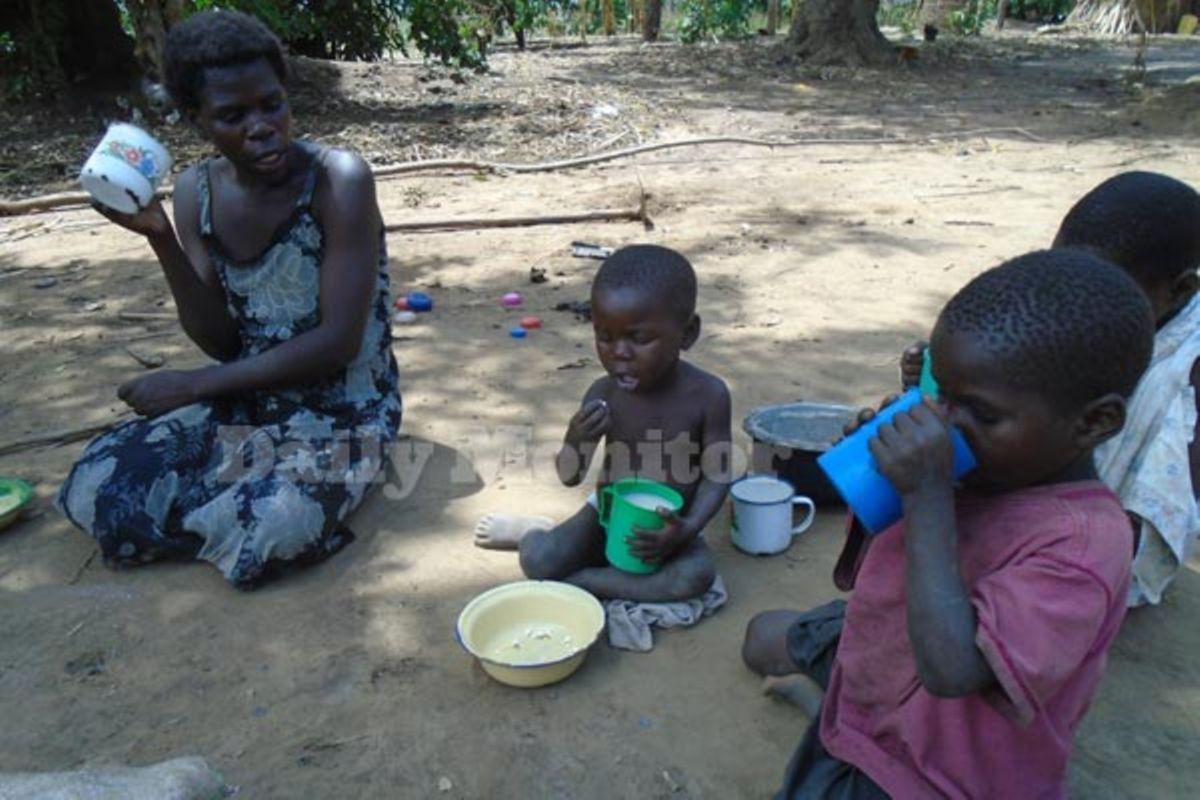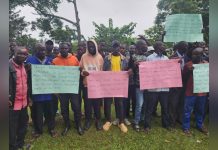Africa-Press – Uganda. As the sun continues to bake Ugandan fields, a picture of climate-related shocks to food supply is starting to emerge even in breadbasket areas.
Harvest failures in the aforesaid areas cannot be taken lightly, with examples elsewhere showing how any disruption to food systems can have calamitous consequences.
While the travails in the semi-arid Karamoja have been widely illuminated, with good reason, disruptions to production in other sub-regions occasioned by a growing climate crisis have gone unnoticed. The impending sugar crisis, that this newspaper recently spotlighted should serve as a wake-up call. The three leading sugar mills in the country put the brewing crisis to an acute shortage of mature cane. This grim outcome presented itself after the areas housing the mills of Kakira, Lugazi and Kinyara received significantly less than normal rainfall.
Along with potatoes, barley, soy and palm oil, sugar accounts for 25 percent of the world’s calorie intake as per the Food and Agriculture Organisation (FAO). FAO says maize, rice and wheat account for 51 percent of the world’s calorie intake. Wheat, which is the world’s most widely consumed grain, is currently in scant supply due to the Russia-Ukraine war. This has produced a great vacancy in Ugandan diets since the grain is used to make bread and chapattis.
Just as vexing is the fact that drought is withering chickpea crops and maize—a staple food grown in such huge volumes. Kenya recently complained about shrinking maize volumes from Uganda.
While the attractiveness of prices in South Sudan has played a factor, the crop also finds itself vulnerable to climates changes in Uganda.
Maize is not alone in this. High quality Arabica coffee—native to the mountainous areas of Elgon Sub-region—nowadays ripens too quickly. Since this has diminished the yield and quality of the coffee species that is quite fussy about climatic conditions, the government has pivoted towards the bitter, grainy flavour that is robusta. This is a regrettable choice not least because high quality Arabica accounts for about two-thirds of the world’s consumption of coffee. Government should not act in a manner that only serves to leave the species hanging in the balance.
The climate-related shocks to coffee and maize growing in Uganda cannot be wished away.
The latest Inter-governmental Panel on Climate Change report on such shocks offers a stark warning about sudden food production losses. It also notes that decreased diet diversity could further disfigure a troubling picture around malnutrition. As such, government has to be smart about how it responds to the problem at hand. The issue of diversity has to be stressed as it helps farmers spread the risk. It generally offers a fallback position if an early season drought wipes out one crop.
But also as aggressive pathogens like Panama 4 threaten the banana industry, government will find itself in a position where tough calls have to be made. It has already frowned upon biotech solutions such as gene editing and transgenics. Agrochemical companies that appear intent on making farmers dependent on them have also found the going tough in Uganda.
Whilst these bold decisions deserve praise, they will count for nought if the government doesn’t indicate how it intends to make crops more resilient to higher temperatures and changing rainfall patterns.
For More News And Analysis About Uganda Follow Africa-Press






